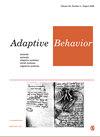Three-dimensional dynamic trust-driven consensus model for social network group decision-making with application to sustainable supplier selection in a circular economy
IF 1.3
4区 计算机科学
Q4 COMPUTER SCIENCE, ARTIFICIAL INTELLIGENCE
引用次数: 0
Abstract
The trust degree between individuals plays an important role in social network group decision-making (SNGDM). The majority of current literature assumes that the trust degree between individuals is constant. However, the trust values among decision-makers (DMs) are subject to change over time. Thus, it is necessary to identify potential dynamic trust that is compatible with the actual SNGDM to support the consensus reaching. For this purpose, this article investigates consensus building that considers dynamic trust among DMs in SNGDM with linguistic distribution assessments (LDAs). Firstly, the three-dimensional trust degree among DMs is constructed from three perspectives: the trust relationship from social networks, the confidence level of DMs, and the similarity of DMs' preferences. Secondly, an optimization model is developed with the objective of maximizing consensus to determine how trust degree is assigned to each perspective, thereby determining the weights of DMs. Then, a double feedback-based consensus mechanism incorporating both opinion evolution and trust evolution is developed. Under the guidance of consensus mechanism, an improved SNGDM approach with LDAs is presented. Finally, we demonstrate our proposed approach through a case study of sustainable supplier selection in a circular economy. Comparative analysis and sensitive analysis verify our approach’s effectiveness.社会网络群体决策的三维动态信任驱动共识模型,应用于循环经济中的可持续供应商选择
个体间的信任度在社会网络群体决策(SNGDM)中发挥着重要作用。目前大多数文献都假定个体间的信任度是不变的。然而,决策者(DMs)之间的信任值会随着时间的推移而变化。因此,有必要识别与实际 SNGDM 相适应的潜在动态信任,以支持达成共识。为此,本文利用语言分布评估(LDA)研究了在 SNGDM 中考虑 DM 之间动态信任的共识构建。首先,从三个角度构建了 DM 之间的三维信任度:来自社交网络的信任关系、DM 的信心水平和 DM 偏好的相似性。其次,以共识最大化为目标建立优化模型,确定如何将信任度分配给各个视角,从而确定 DM 的权重。然后,建立一个基于双重反馈的共识机制,其中包含意见演进和信任演进。在共识机制的指导下,我们提出了一种使用 LDA 的改进 SNGDM 方法。最后,我们通过一个循环经济中可持续供应商选择的案例研究来证明我们提出的方法。比较分析和敏感分析验证了我们方法的有效性。
本文章由计算机程序翻译,如有差异,请以英文原文为准。
求助全文
约1分钟内获得全文
求助全文
来源期刊

Adaptive Behavior
工程技术-计算机:人工智能
CiteScore
4.30
自引率
18.80%
发文量
34
审稿时长
>12 weeks
期刊介绍:
_Adaptive Behavior_ publishes articles on adaptive behaviour in living organisms and autonomous artificial systems. The official journal of the _International Society of Adaptive Behavior_, _Adaptive Behavior_, addresses topics such as perception and motor control, embodied cognition, learning and evolution, neural mechanisms, artificial intelligence, behavioral sequences, motivation and emotion, characterization of environments, decision making, collective and social behavior, navigation, foraging, communication and signalling.
Print ISSN: 1059-7123
 求助内容:
求助内容: 应助结果提醒方式:
应助结果提醒方式:


